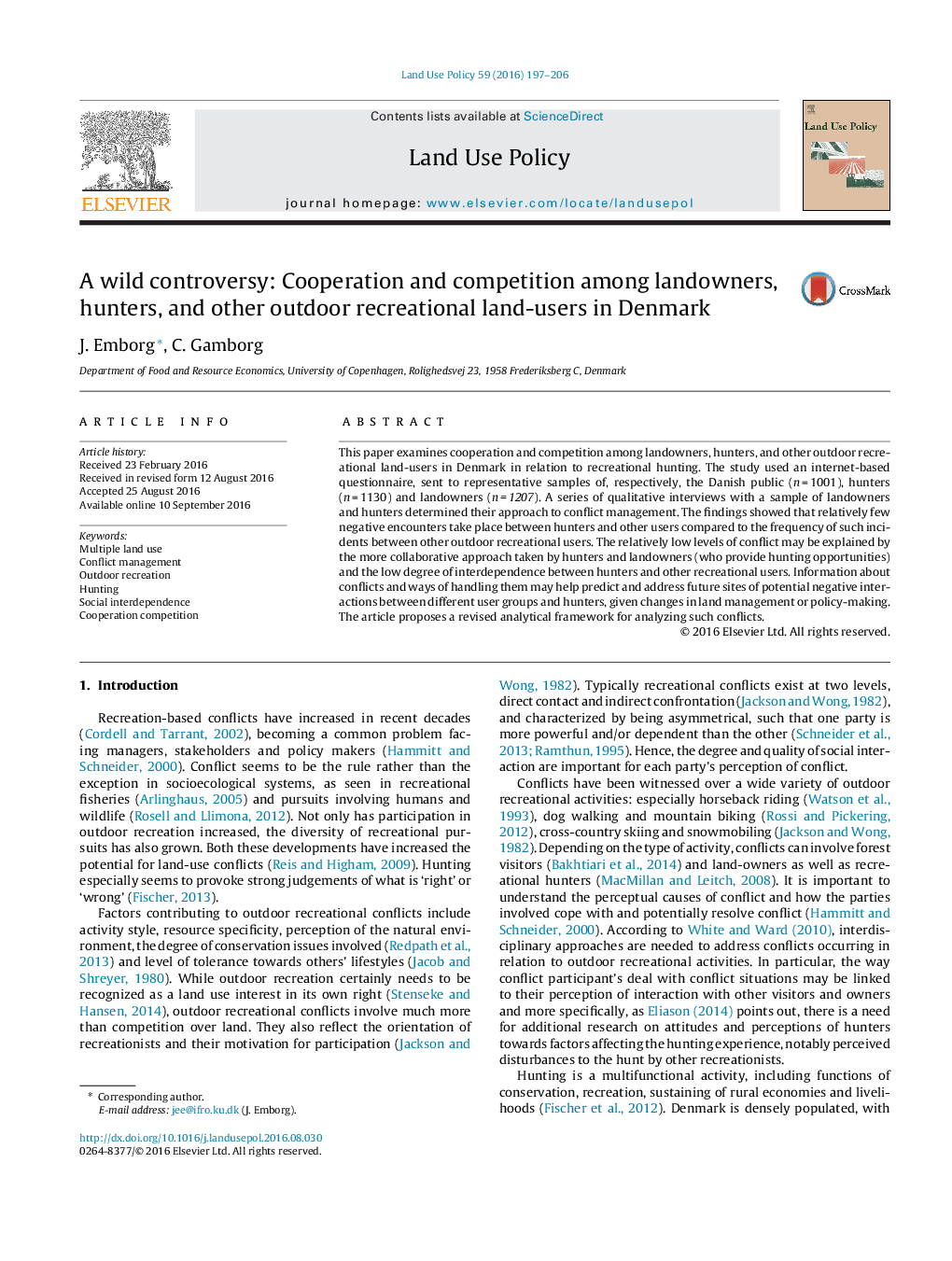| Article ID | Journal | Published Year | Pages | File Type |
|---|---|---|---|---|
| 6461506 | Land Use Policy | 2016 | 10 Pages |
â¢Relatively few negative encounters between hunters and others users.â¢Low conflict levels explained by collaborative approaches taken by parties.â¢Social interdependence theory may help predict land use conflict and support policy- making.â¢A revised analytical framework for analyzing such land use conflicts is provided.
This paper examines cooperation and competition among landowners, hunters, and other outdoor recreational land-users in Denmark in relation to recreational hunting. The study used an internet-based questionnaire, sent to representative samples of, respectively, the Danish public (n = 1001), hunters (n = 1130) and landowners (n = 1207). A series of qualitative interviews with a sample of landowners and hunters determined their approach to conflict management. The findings showed that relatively few negative encounters take place between hunters and other users compared to the frequency of such incidents between other outdoor recreational users. The relatively low levels of conflict may be explained by the more collaborative approach taken by hunters and landowners (who provide hunting opportunities) and the low degree of interdependence between hunters and other recreational users. Information about conflicts and ways of handling them may help predict and address future sites of potential negative interactions between different user groups and hunters, given changes in land management or policy-making. The article proposes a revised analytical framework for analyzing such conflicts.
